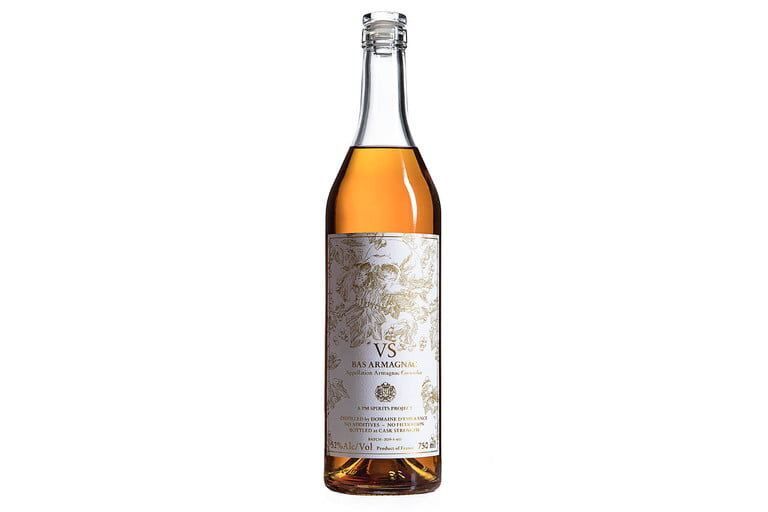Donald Trump's talk of applying new tariffs to goods from America's biggest trade partners has sparked months of uncertainty for business owners.
On Saturday, the president made good on his threats, ordering a new 25% tax on shipments from Mexico and Canada and raising existing tariffs on goods from China by 10%.
But that has not stopped the questions.
"Is it for a day, is it a political flex or is it something that will last for four years?" asked Nicolas Palazzi, the founder of Brooklyn-based PM Spirits. He runs a 21-person business that imports and sells wine and spirits, about 20% of which come from Mexico.
Trump's orders set in motion threats that the president has discussed for months, striking at shipments from America's top three trade partners, which together account for more than 40% of the roughly $3tn goods the US imports each year.
Canadian oil and other "energy resources" will face a lower 10% rate. But otherwise, there will be no exceptions, the White House said.
Trump said the tariffs were intended to hold Canada and Mexico accountable for promises to address illegal immigration and drug trafficking.
The measures go into effect on 4 February and are to remain in place "until the crisis is alleviated," according to the orders.
If the plans were not a surprise, they still presented a potentially stunning blow to many businesses, especially for those in North America. The three countries have become tightly linked economically after decades of free trade under a treaty signed in the 1990s, known then as Nafta and updated and renamed under the Trump administration to USMCA.
The growth of mezcal in the US, brought in by businesses like Palazzi's, has been part of this shift.
Since 2003, consumption of tequila and mezcal has roughly tripled, increasing at a rate of more than 7% each year, according to Distilled Spirits Council, a trade group.
Overall since the 1990s, trade in spirits between the US and Mexico has surged by more than 4,000% percent, said the organisation, which issued a statement after the president's announcement warning that the tariffs would "significantly harm all three countries".
For months, Palazzi has been fielding nervous questions from his suppliers in Mexico, who are typically small, family owned businesses and may not survive if the tariffs are prolonged.
If it sticks, he said the 25% tax on the bottles of mezcal, tequila and rum he brings in will push up prices - and sales will drop.
"Definitely this is going to impact the business negatively. But can you really plan? No," he said. "Our strategy is roll-with-the-punches, wait and see and adapt to whatever craziness is going to unfold."
Economists say the hit from the tariffs could push the economies of Mexico and Canada into recession.
Ahead of the announcement, Dan Kelly, president of the Canadian Federation of Independent Businesses, described the looming tariffs from the US, and expected retaliation, as "existential" for many of his members.
"Look, we get that the government has got to respond in some fashion …. But at the same time we urge the government to use caution," he said, comparing tariffs on imports to chemotherapy: "It poisons your own people in order to try and fight the disease."
"It's going to have an effect everywhere," said Sophie Avernin, director of De Grandes Viñedos de Francia in Mexico, noting that many Americans own Mexican alcohol brands and Modelo beer is actually owned by a Belgian company.
Trump, who has embraced tariffs as a tool to address issues far removed from trade, has dismissed concerns about any collateral damage to the economy in the US.
But analysts have warned the measures will weigh on growth, raise prices and cost the economy jobs - roughly 286,000, according to estimates by the Tax Foundation, not including retaliation.
Those in the alcohol business said the industry had already been struggling to emerge from the shadow of the pandemic and its after-shocks, including inflation, which has prompted many Americans to cut back on dining out and drinking.
Smaller firms, who typically have less financial cushion and ability to swallow a sudden 25% jump in cost, will bear the brunt of the disruption.
"I'm pretty frustrated," said California-based importer Ben Scott, whose nine-person business Pueblo de Sabor brings in brands from Mexico such as Mal Bien and Lalocura.
"There's just a huge cost that's going to affect so many people in ways other than they're paying a couple bucks more for a cocktail, which doesn't sound like a tragedy."
Fred Sanchez has spent years pushing to expand his business, Bad Hombre Importing, a small California-based importer and distributor of Mexican agave-based spirits like Agua del Sol, and was recently working on deals in New York and Illinois.
But his potential partners started hesitating as Trump's tariff talk ramped up last year.
Now, instead of expanding, he is contemplating selling off his stock of liquor and possibly shutting down. He said he had little capacity to absorb the jump in costs and saw little scope for raising prices in the current economy.
"25% is just not something that we can realistically pass onto the consumer," he said.
Sanchez said he believed that Trump might be using tariffs as a negotiating tactic, and the tax could be short-lived. Still, for his business, damage is already done.






